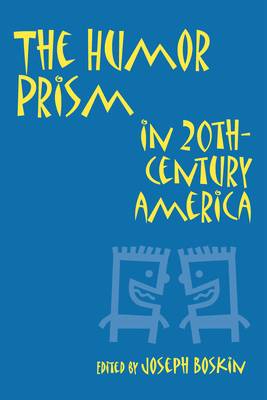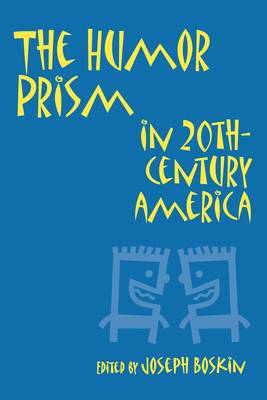
- Retrait gratuit dans votre magasin Club
- 7.000.000 titres dans notre catalogue
- Payer en toute sécurité
- Toujours un magasin près de chez vous
- Retrait gratuit dans votre magasin Club
- 7.000.000 titres dans notre catalogue
- Payer en toute sécurité
- Toujours un magasin près de chez vous
Description
The Humor Prism in Twentieth-Century America explores to what extent and in what ways American humor in the twentieth century reflects history.
Why do some jokes evaporate after the telling while others are transmitted to subsequent generations? Just what property of humor allows it to touch diverse members of a culture at a given time? As a penetrating and refracting angle of history, humor illuminates the expectations and contradictions of society, its anxieties and confusions, and permits perspective into any historic moment. The Humor Prism in Twentieth-Century America explores to what extent and in what ways American humor in the twentieth century reflects history, examining the dynamics and disguised messages behind humor.
The first section of this volume concentrates on patterns of humor in the twentieth century. Section two looks at the power and politics of women's humor, and at multicultural humor. The final section presents and evaluates the major joke cycles from the post-World War II period to the 1990s as responses to profound social and economic change, such as Polish jokes and JAP jokes.
Spécifications
Parties prenantes
- Auteur(s) :
- Editeur:
Contenu
- Nombre de pages :
- 272
- Langue:
- Anglais
- Collection :
Caractéristiques
- EAN:
- 9780814325971
- Date de parution :
- 01-08-97
- Format:
- Livre broché
- Format numérique:
- Trade paperback (VS)
- Dimensions :
- 154 mm x 229 mm
- Poids :
- 367 g







